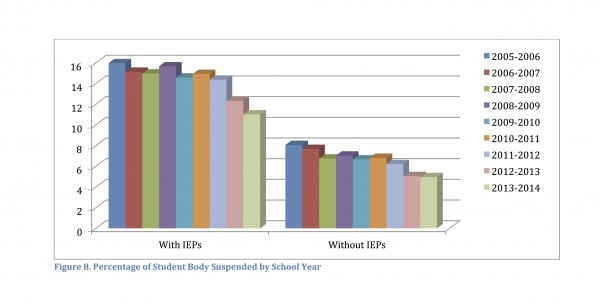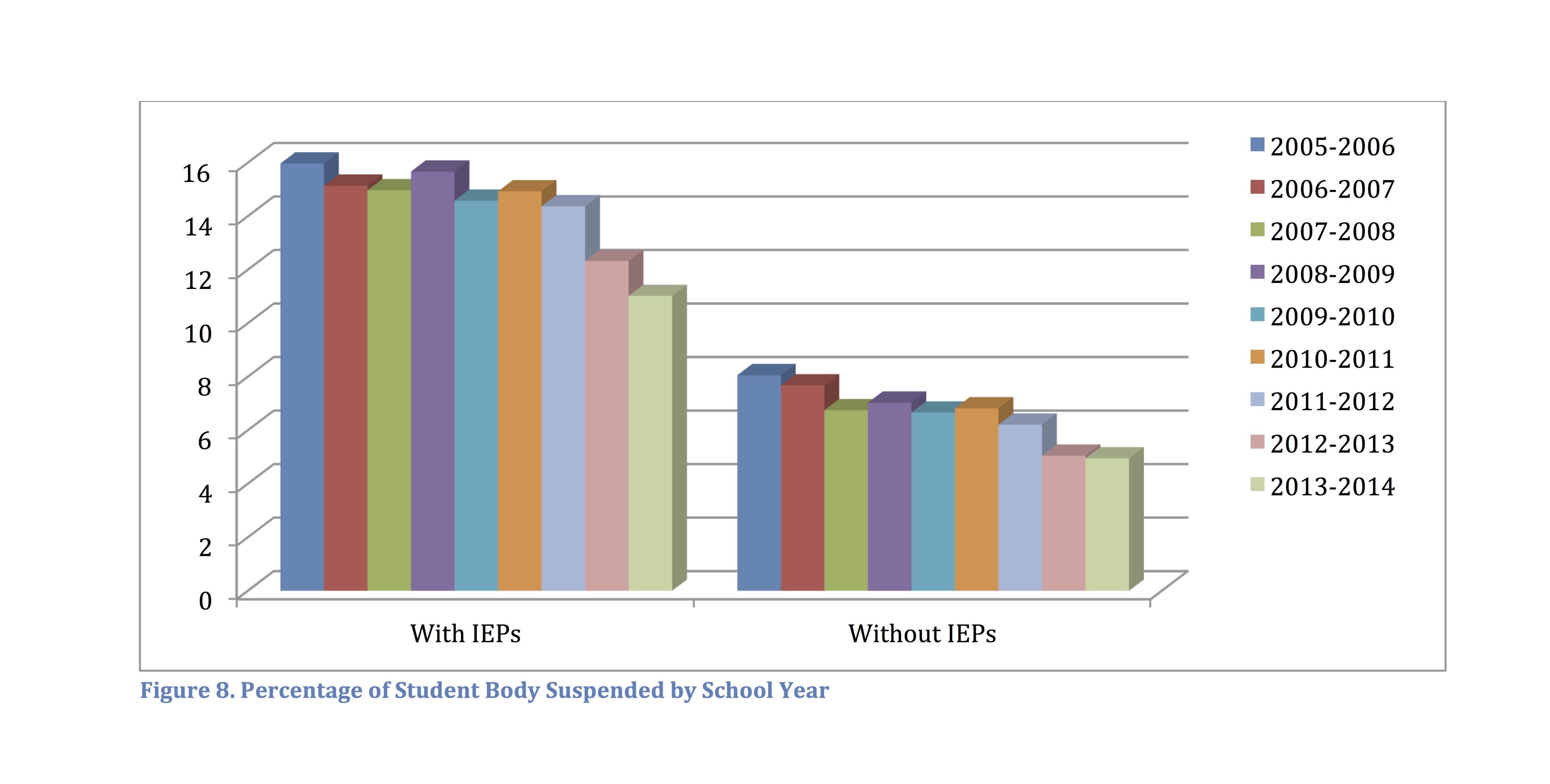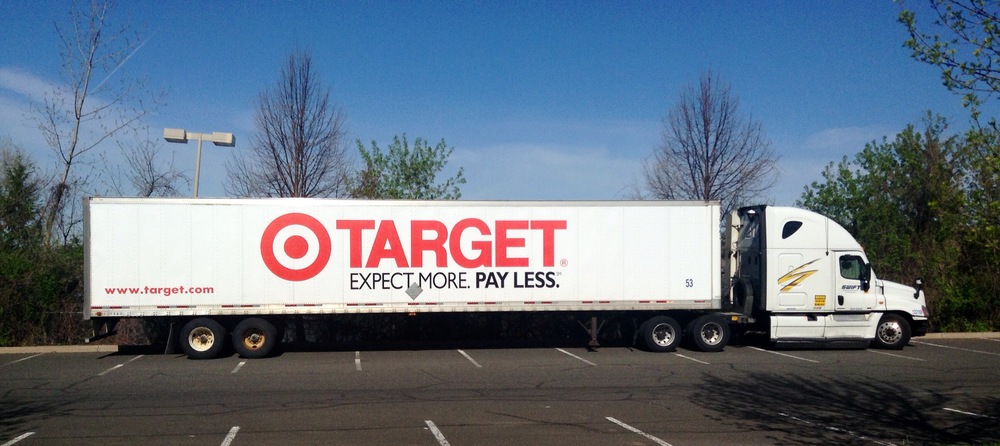 Students with disabilities across Rhode Island are suspended from school at rates more than twice as high, on average, as their representation in the student body, an ACLU of Rhode Island report has found. These disproportionate suspension rates, like those that impact racial minorities, begin in the earliest grades, and are often for low-risk behavioral issues that could be addressed in other ways. During the 2013-2014 school year, every school district in Rhode Island and all but two charter schools over-suspended students with disabilities.
Students with disabilities across Rhode Island are suspended from school at rates more than twice as high, on average, as their representation in the student body, an ACLU of Rhode Island report has found. These disproportionate suspension rates, like those that impact racial minorities, begin in the earliest grades, and are often for low-risk behavioral issues that could be addressed in other ways. During the 2013-2014 school year, every school district in Rhode Island and all but two charter schools over-suspended students with disabilities.
The ACLU report, “Suspended Education: The Over-Suspension of Students With Disabilities in Rhode Island,” found that students with disabilities comprised 32.90% of all suspensions between 2005 and 2014. This is more than twice what is expected, given that they made up just 16.11% of the student body population on average during that time. The report further noted that students with disabilities are over-suspended at the highest rates when they are in elementary school—a particularly vulnerable time when they should be receiving much-needed individualized support, not punishment.
Among our other findings:
- Despite nationwide recommendations that suspensions carry significant risks and should be used only for the most serious infractions, suspensions of students, and students with disabilities, are often issued for low-risk, behavioral infractions. Further, nearly 36% of suspensions for such offenses over the years studied were given to children with disabilities, 2.23 times the rate expected given their representation in the population.
- Twenty school districts and eight charter schools suspended students with disabilities at rates twice, or more than twice, as high as would be expected during the 2013-2014 school year alone.
- Suspension disparities against students with disabilities begin, and are at their highest, in elementary school. Thirty-eight percent of suspensions for elementary school students were issued to students with disabilities, 2.58 times higher than expected given their representation in the population. High school students with disabilities were suspended nearly twice as often as expected.
- The labels assigned to the behavior of even the youngest students call into question the overreliance on suspensions for normal childhood roughhousing. During the 2013-2014 school year, 266 suspensions for fighting or assault were issued to students between kindergarten and the second grade; 21.05% of these suspensions were issued to students with disabilities.
- Altogether, 14.45% of students with disabilities were suspended at least once between 2005 and 2014, compared to just 6.65% of students without disabilities.
From the report: “The figures suggest that, while students with disabilities are supposed to be given myriad services, they are being removed from school not because of their behavior, but because of the failure of schools to meet their needs. Worse, they are being disproportionately suspended for relatively minor, and often subjective, infractions.”
In the report, we offer a series of recommendations to keep students in the classroom, including passage of legislation currently before the General Assembly that would limit the use of out-of-school suspensions for only the most serious offenses. We further recommended that the Rhode Island Department of Education and local school districts examine their data to identify disparities in the suspension rates of students with disabilities, develop plans to reduce those disparities, and investigate alternative evidence-based disciplinary methods.
Suspensions have for too long been a first response to children’s behavior instead of a last resort. That Rhode Island’s children with disabilities are suspended even when federal law requires they be given particular behavioral supports only underscores the overreliance on suspensions to address the behavior that comes with being a child. Children with disabilities deserve better than a ‘troublemaker’ label and a trip down the school-to-prison pipeline, and Rhode Island must work to do better by them.





